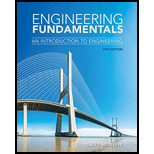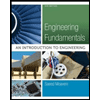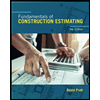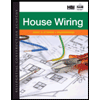
ENGINEERING FUNDAMENTALS
6th Edition
ISBN: 9781337705011
Author: MOAVENI
Publisher: CENGAGE L
expand_more
expand_more
format_list_bulleted
Question
Chapter 8, Problem 4P
To determine
State the advantages of daylight saving time except energy savings.
Expert Solution & Answer
Want to see the full answer?
Check out a sample textbook solution
Students have asked these similar questions
Q13: The line CD, C(xc, 6), D(6,yd), the point D is on the right of point C, the value
of horizontal effect H(3,0) is on the right of point C, the vertical effect V(0, -2)
right of H. the distance between projection of the points H, V is 5cm, Find:
1- The value of xc and yd.
2- The distance between projections of the points C, D.
3- The true length (T.L.) of CD.
4- The angles a and ẞ.
5- A point F in the middle of line CD, find F (xf, yf).
Q9: The straight line AB of true length (8) cm, having the following data: A (5, ya) &
B (xb, yb), the point B is on the left of point A, the inclination of the line to the
horizontal plane (H.P) is 30° (a) it Horizontal trace H (-3, 0), and point H is on
the left of point A with distance (16) cm. Draw the Plan & Elevation of the line
AB and determine the following:
1. The missed coordinates: ya, xb, yb.
2. The coordinates of the vertical trace (V).
3. The inclination of the line to the vertical plane (V.P) (B).
4. The distance between projections of the points A and B
Q12: The straight line AB, having the following data: the distance between
projections of the points A and B is 8 cm, and A (2.5, 0) & B (0, 6), the point B
is on the left of point A. Draw the Plan & Elevation of the line AB and
determine the following:
1. The true length T.L of the line AB.
2. The coordinate of Vertical trace V and Horizontal trace H.
3. The inclination of the line to the V.P and H.P.
4. A point E in the middle of the line AB, find E (xe,ye).
Chapter 8 Solutions
ENGINEERING FUNDAMENTALS
Ch. 8.2 - Prob. 1BYGCh. 8.2 - Prob. 2BYGCh. 8.2 - Prob. 3BYGCh. 8.2 - Prob. 4BYGCh. 8.2 - Prob. BYGVCh. 8.4 - Prob. 1BYGCh. 8.4 - Prob. 2BYGCh. 8.4 - Prob. 3BYGCh. 8.4 - Prob. BYGVCh. 8.5 - Prob. 1BYG
Ch. 8.5 - Prob. 2BYGCh. 8.5 - Prob. 3BYGCh. 8.5 - Prob. 4BYGCh. 8.5 - Prob. BYGVCh. 8 - Prob. 1PCh. 8 - Prob. 3PCh. 8 - Prob. 4PCh. 8 - Prob. 9PCh. 8 - Prob. 10PCh. 8 - Prob. 11PCh. 8 - Prob. 12PCh. 8 - Prob. 13PCh. 8 - Prob. 14PCh. 8 - Prob. 15PCh. 8 - Prob. 17PCh. 8 - Prob. 18PCh. 8 - Prob. 19PCh. 8 - Prob. 20PCh. 8 - Prob. 21PCh. 8 - Prob. 22PCh. 8 - Prob. 23PCh. 8 - Prob. 24PCh. 8 - Prob. 25PCh. 8 - Prob. 26PCh. 8 - Prob. 27PCh. 8 - Prob. 28PCh. 8 - Prob. 29PCh. 8 - Prob. 30PCh. 8 - Prob. 31PCh. 8 - Prob. 32PCh. 8 - Prob. 33PCh. 8 - Prob. 34PCh. 8 - Prob. 35PCh. 8 - Prob. 36PCh. 8 - Prob. 37PCh. 8 - Prob. 38PCh. 8 - Prob. 39PCh. 8 - Prob. 40PCh. 8 - Prob. 41PCh. 8 - Prob. 42PCh. 8 - Prob. 43PCh. 8 - Prob. 44PCh. 8 - Prob. 45PCh. 8 - Prob. 46PCh. 8 - Prob. 47PCh. 8 - Prob. 48PCh. 8 - Prob. 49PCh. 8 - Prob. 50PCh. 8 - Prob. 51PCh. 8 - Prob. 52PCh. 8 - Prob. 53PCh. 8 - Prob. 54PCh. 8 - Prob. 55PCh. 8 - Prob. 56PCh. 8 - Prob. 57PCh. 8 - Prob. 58PCh. 8 - Prob. 59P
Knowledge Booster
Similar questions
- Deformation of a retaining wall is assumed to be as presented in the figure below. Determine:a) variation of the active and passive pressures on the wall for the presented deformation b) magnitude of the total horizontal force on the right side of the wall.arrow_forward2. a) Consider a cable used for aerial tramway (see figure a). The span is 400 m. The unstretched length of the cable is 402 m. Its mass per unit length is 10kg. The elasticity EA = 10 N. Find the horizontal load on the two ends and the sag d. Determine if the small sag condition is satisfied. b) When a cable car whose mass is 500kg is hung below the cable at a horizontal distance of 100 m from the left end, find the horizontal load on the ends. C) As the car goes along the cable, at which position you will see maximum horizontal load on the two ends?arrow_forwardTwo square surface footings are placed 20 feet apart. Calculate ultimate settlements beneath footing I and at the centerline of the two footings.arrow_forward
- Find the bending moment diagram for. structure drawn below using castigliani's Second theorems. 10kN/m A B 5m 10marrow_forwardDesign the foundation in Problem 3 (find the radius), for the assumptions that the failure isgeneral, sand is dry, loading Q=6000 kN, and the factory of safety is 2.4.arrow_forwardAssume that the moist unit weight of sand in Problem 1 to be 122 lb/ft3, the saturated unit weight of sand 130 and clay 120 lb/ft 3. What should be the thickness of a soil layer of a unit weight of 120 lb/ft 3 that would cause consolidation settlement of 0.1 ft in 100 days?arrow_forward
- Define the allowable bearing capacity of a circular foundation of a radius 2R=10 ft using theTerzaghi's bearing capacity equation for a local failure. In your calculations assume two scenarios:a) that the ground water table matches the bottom of the foundation, and b) that the ground watertable is 6 ft below the bottom of the foundation. Use a factor of safety of 2.8, and the dry unit weightabove the ground water table.arrow_forwardFor the square foundation below determine: a) ultimate settlement and b) settlement after 140days due to consolidation of the clay layer. Base your calculations on the values at the midpoint ofthe layer.arrow_forwardEvaluate all reactions & internalforces using Moment DistributionE=29000ksi I=400in^(4) for all members.arrow_forward
- A silty sand sample failed during a consolidated-undrained triaxial test at F1=280 kPa andF3=170 kPa. With the assumption that c=0 and A=0.65, determine the consolidated-undrainedfriction angle Ncu and a drained friction angle N. If a consolidated-undrained test on such a soil isconducted at a confining pressure F3 =340 kPa, what will be major total and effective stresses andthe pore water pressure at failure? What will be the maximum shear stress J during a "slow" directshear test, if the vertical stress Fv=160 kPa?arrow_forwardCheck the adequacy of a 15ft long A992 W12x65 beam-column shown in figure (1). The axial loads and end moments have been obtained from 2nd order analysis of the gravity loads. The frame and loading are symmetric. Assume that (Cb) is 1.06. PD-85k, PL-220k MD-15k-ft, ML-45k-ft Le-8.6ft MD-18k-ft, ML-52kfarrow_forwardecos y dyarrow_forward
arrow_back_ios
SEE MORE QUESTIONS
arrow_forward_ios
Recommended textbooks for you
 Engineering Fundamentals: An Introduction to Engi...Civil EngineeringISBN:9781305084766Author:Saeed MoaveniPublisher:Cengage Learning
Engineering Fundamentals: An Introduction to Engi...Civil EngineeringISBN:9781305084766Author:Saeed MoaveniPublisher:Cengage Learning
 Fundamentals Of Construction EstimatingCivil EngineeringISBN:9781337399395Author:Pratt, David J.Publisher:Cengage,
Fundamentals Of Construction EstimatingCivil EngineeringISBN:9781337399395Author:Pratt, David J.Publisher:Cengage, Residential Construction Academy: House Wiring (M...Civil EngineeringISBN:9781285852225Author:Gregory W FletcherPublisher:Cengage Learning
Residential Construction Academy: House Wiring (M...Civil EngineeringISBN:9781285852225Author:Gregory W FletcherPublisher:Cengage Learning

Engineering Fundamentals: An Introduction to Engi...
Civil Engineering
ISBN:9781305084766
Author:Saeed Moaveni
Publisher:Cengage Learning


Fundamentals Of Construction Estimating
Civil Engineering
ISBN:9781337399395
Author:Pratt, David J.
Publisher:Cengage,

Residential Construction Academy: House Wiring (M...
Civil Engineering
ISBN:9781285852225
Author:Gregory W Fletcher
Publisher:Cengage Learning